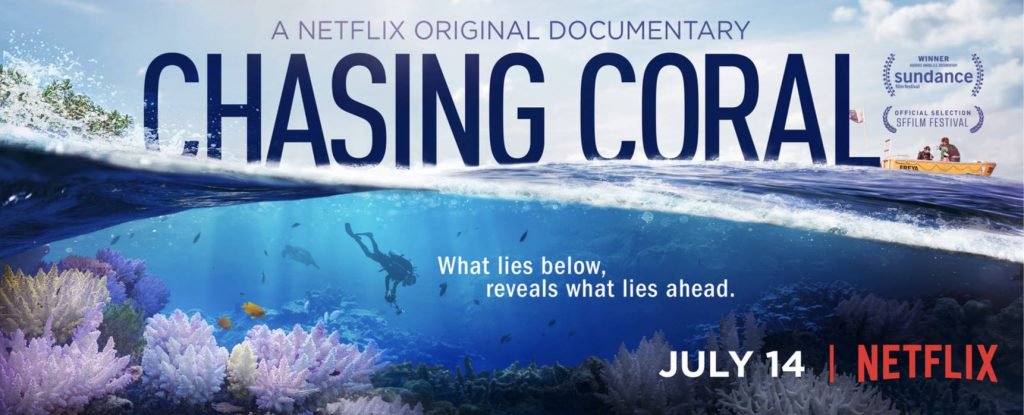
By now you probably have seen or heard of Chasing Coral, a Netflix original documentary that was released worldwide on July 14. The film premiered at the Sundance Film Festival and was acquired by Netflix on the same day. Coral bleaching due to rising ocean temperatures is the focus of the film which took over 3 years to make. The film begins as a visual feast for any aquarium hobbyist but is overshadowed by the massive scale coral deaths that were documented with time lapse photography.
Zackery Rago features prominently in the documentary. Zack is a self proclaimed coral nerd from Colorado and built the camera systems that were used in the film. He confesses early on that the opportunity to work on the film given his passion for the hobby was a dream wish. He shares raw emotions throughout the film, often times breaking down at the sheer enormity of the events he is witnessing in that moment. Charlie Veron also makes an appearance and talks about his observations of the reefs past and present.
Also notable was the outreach that was done to ask divers and scientists from all over the world to participate. The film features excepts from global reports of similar events happening in oceans around the world. The film is easily able to communicate their objective of turning up the spotlight on a global problem in a powerful way.
We had a chance to ask Zack Rago some questions.
Read more at
https://blog.marinedepot.com/2017/07/fever-oceans-chat-zack-rago-chasing-coral.html









